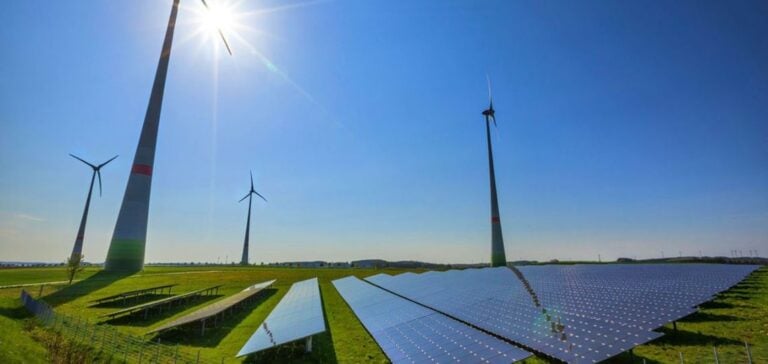European Energy recently obtained approvals for the grid connection of 500 MW of solar and wind projects in Romania, a significant step towards the construction phase of these projects.
Expanding the Development Pipeline
European Energy’s development pipeline in Romania now exceeds 1.5 GW of wind and solar projects. This crucial step enables the company to bring these projects closer to the construction phase, marking a major advance in Romania’s renewable energy sector.
Ioannis Kalapodas, Director of European Energy’s Romanian office, sees Romania as a very promising market. The imminent announcement of an auction for Contracts for Difference (CfD) as part of Romania’s support for renewable energies should enable many wind and solar projects to go ahead.
Energy production capacity
By the end of 2023, Romania had 11.7 GW of renewable energy capacity built or approved for grid connection, according to the International Renewable Energy Agency (IRENA). Increased grid connections for European Energy projects will contribute to this capacity increase.
Thorvald Spanggaard, Executive Vice President and Head of Project Development at European Energy, emphasizes that securing 500 MW of grid connections is a key step towards achieving market leadership. Romania can foster a new, progressive trend in renewable energy development thanks to the recent support program for Contracts for Difference.
Development prospects
European Energy believes that hybrid projects, combining solar, wind and battery storage technologies, could be the driving force behind the development of renewable energies in Romania. Another potential initiative to stimulate this development is the establishment of clear regulations for guarantees of origin, which would encourage power purchase agreements by companies in the country.
These steps could help Romania diversify its energy sources and reduce its dependence on fossil fuels. By investing in modern, sustainable infrastructure, Romania could meet its energy capacity targets while promoting economic growth.
With the recent approval of 500 MW of grid connections, European Energy is making significant progress in its ambition to develop renewable energies in Romania. This development is accompanied by significant economic and energy prospects for the country, positioning Romania as a key player in Europe’s renewable energy sector.






















